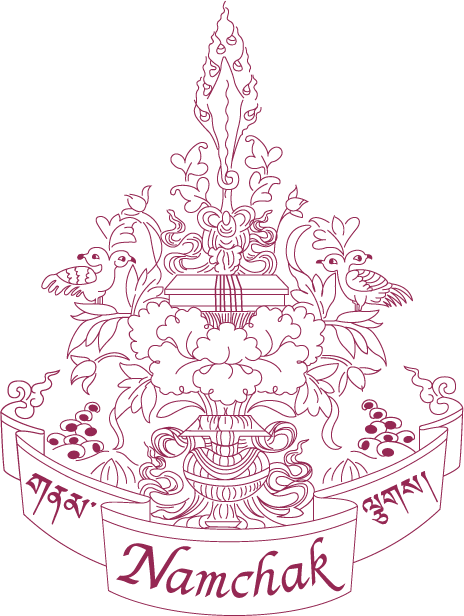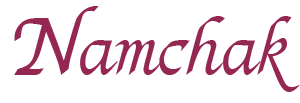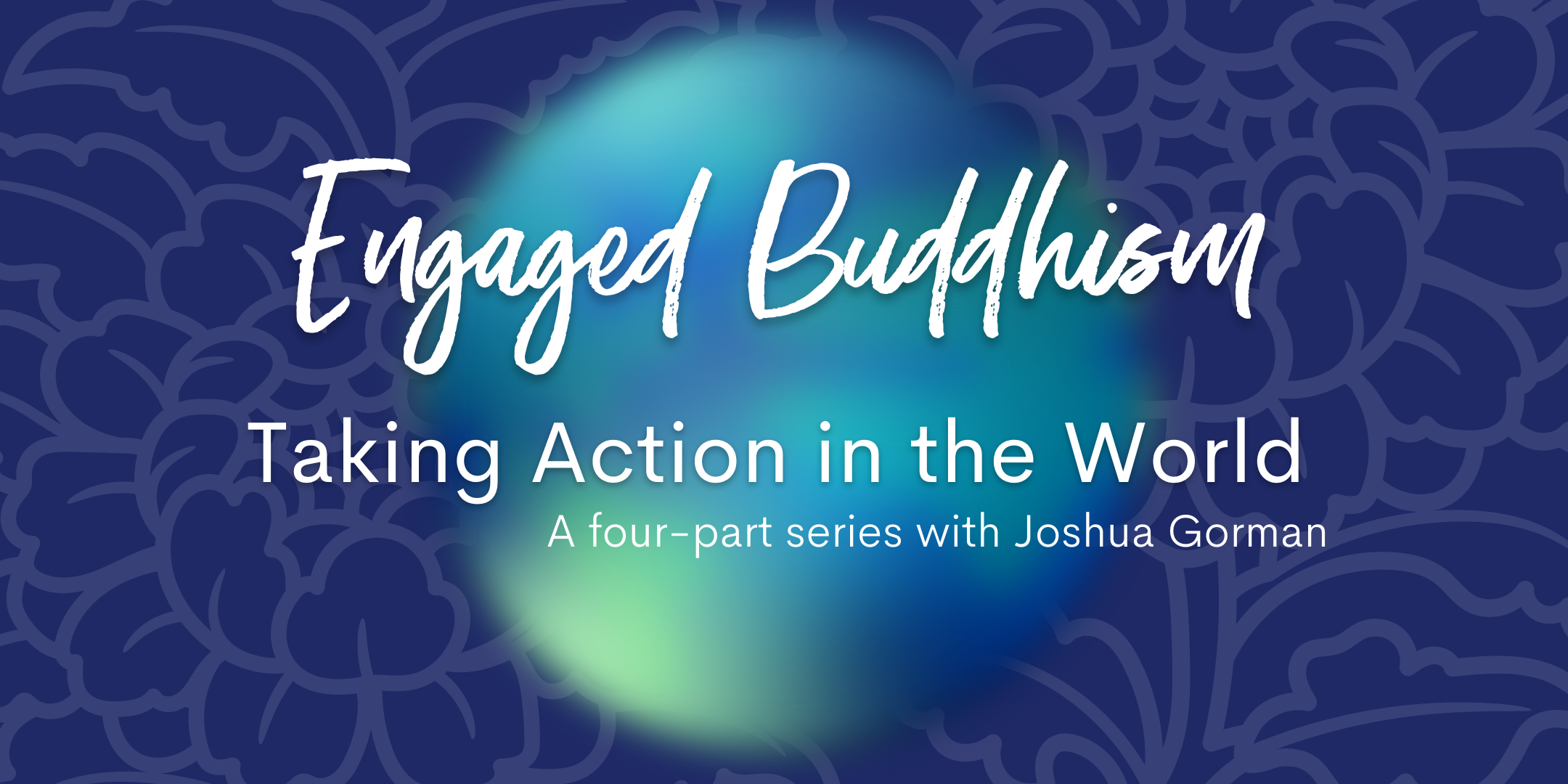“The Earth right now is calling on us all to become bodhisattvas.” – David Loy
“Action on behalf of life transforms. Because the relationship between self and the world is reciprocal, it is not a question of first getting enlightened or saved and then acting. As we work to heal the earth, the earth heals us.”
-Robin Wall Kimmerer
The workshop series brings a special emphasis to the World strand in Namchak’s Personal, Community & World framework.
We live in a time when the world’s suffering is breaking our hearts everywhere. For those of us called to walk the path of the bodhisattva, we are being asked: What can we do to be of most benefit with our lives? How can we help create a peaceful, just, and sustainable world? Where do we begin? How do we not burn out? How can we act with compassion in ways that are aligned with our inner practices of awakening?
In this four-week course, we will explore the concept of Engaged Buddhism and how we can take meaningful action in the world to bring about healing and collective liberation. We will look at frameworks for how we can effectively engage in social change; explore Buddhist approaches for taking action as a practice; and identify specific ways we can engage in action using our unique gifts and in sangha with others.
We will meet for four 90-minute weekly sessions on Wednesday evenings. Each session will be facilitated by social change leader and Namchak practitioner Joshua Gorman. Activities will include whole-group conversation, journaling, self-reflection, small-group dialogue, and integration practices. There will be an optional bonus fifth-week session for those interested in Getting into Action!
- Wed, September 11, 5:30 – 7pm MDT
- Wed, September 18, 5:30 – 7pm MDT
- Wed, September 25, 5:30 – 7pm MDT
- Wed, October 2, 5:30 – 7pm MDT
- Wed, October 9, 5:30 – 7pm MDT (Optional)
Weekly Schedule:
- Week 1- Introduction to Engaged Buddhism
- Week 2 – Frameworks for Social Change
- Week 3 – The Practice of Taking Action in the World
- Week 4 – Finding Your Gifts & Call to Action
- Week 5 – Getting into Action! (Optional)
Who this course is for:
Whether you are an experienced practitioner or new to both meditation and social action, this course offers a unique opportunity to explore how the principles of Engaged Buddhism can help you contribute to creating a peaceful, just, and sustainable world. Join us to connect your inner journey with outer change and become a part of a compassionate community dedicated to making a difference.
All sessions will be recorded and shared only with participants. We ask that participants attend at least three of the four sessions.
Benefits of Participation:
- Holistic Integration: Learn how to seamlessly integrate inner spiritual practices with outward social actions.
- Sustainable Activism: Discover methods to engage in social change work that are sustainable and prevent burnout.
- Community Support: Join a supportive community of like-minded individuals who share a commitment to both personal and societal transformation.
- Practical Tools: Gain practical tools and frameworks for taking effective action in the world while staying grounded in spiritual practices.
- Personal and Collective Growth: Experience personal growth through self-reflection and collective growth through shared learning and action.
Joshua Gorman is a changemaker, youth organizer, and community builder living in northern California. He founded Generation Waking Up, a nonprofit empowering diverse young changemakers, and is a co-founder of the Thrive Network, an organization building beloved community for these times. Joshua worked closely with Namchak on the creation of the Compassion in Action Network, and as a student at Namchak, he recently graduated from the AWE program and is working to complete the Ngondro. As a practitioner of Engaged Buddhism, Joshua seeks to uplift the many efforts of Buddhist and mindfulness practitioners who are connecting their spiritual practice with social action in the world.
Zoom Login Info
The Zoom link will be provided upon registration and a reminder email will be sent out each week with the login info. Please note: Confirmation emails from Eventbrite often end up in spam/promotions tab. Please check there if you do not see the confirmation email with the Zoom info.
Tuition: Our intention is to make this workshop financially accessible to all, so we offer a tiered fee structure. Please choose whichever level works best for you. If program costs present a financial barrier or you are interested in a stipend to offset the cost of childcare, please contact rachel@namchak.org.
A NOTE for Learning Circles: If you’re part of a Namchak Learning Circle or Compassion in Action chapter, we invite you to consider participating in this series with other Learning Circle members. Along with developing a shared foundation together on Engaged Buddhism, one of our hopes and intentions is for Learning Circles to engage in service and action together.
Community Commitments
In order to co-create a brave, inclusive, anti-oppressive and learning- centered space, in our community we each agree to:
- Be inclusive of diverse opinions and backgrounds through treating each other with respect and appreciation.
- Commit to words and actions of non-harm within our group interactions.
- Learn by immersing in and committing to the practices at hand.
- Hold personal sharing in confidence.
- Be present, practice mindful listening, and not offer unsolicited advice.
- Allow and invite for equal sharing of voices as well as the right to pass.
- Take care not to speak for others in the group.
- Assume good intent and come from a place of curiosity and care.
- Come as we are with permission to be “raggedy.”
- Be mindful of and take personal and collective responsibility for our own biases, including the use of language that may “other,” “cancel,” or dehumanize any person, groups of people, and/or their experiences.
- If possible, participants will leave their cameras on during class. If for any reason, you need to have your camera off for any duration of time, this is supported by the group with the assumption that you are still present and participating. If you are not able to be present, posting a message in the chat would be appreciated, especially during discussion.
- Use the “Ouch/Oops” tool to address hurtful comments and language in the moment and to allow space for repair.*
We aspire for this sangha to be a place of refuge.
*Ouch/Oops. This is a tool for addressing hurtful comments/language in the moment. If someone says something hurtful, anyone can bring attention to it in the moment by saying “Ouch” and then explaining what was hurtful. If it is a word choice issue, be sure to give the first speaker the chance to rephrase and try again (remember, it’s okay to be raggedy, and we are all assuming good intent!) When someone says something that comes out wrong or hurts someone else, they should start with “Oops” – first, acknowledge the impact of their words, and then try again. This can also be done outside of this course if someone feels an “Ouch,” but does not feel comfortable sharing it with the group at that time.



